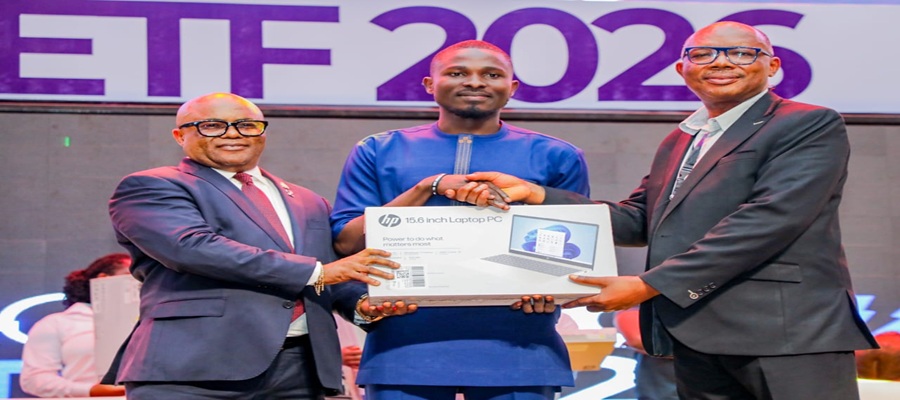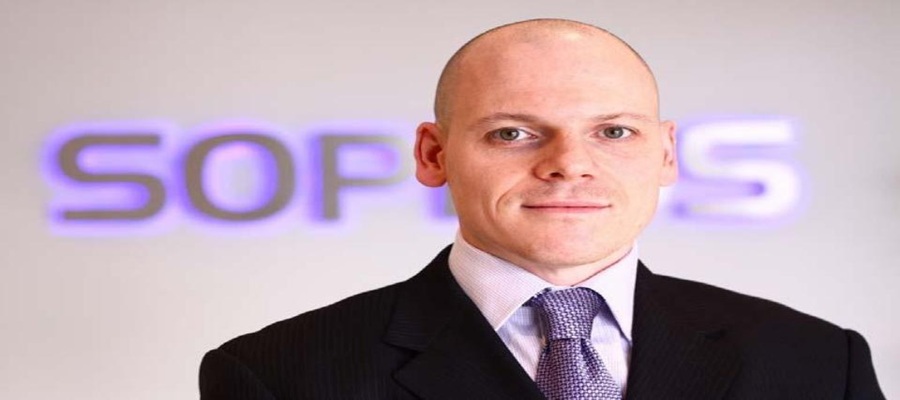Telecom
Zain Subscriber Base Rises to 56.3M as Group Net Profit ups by 7%
Zain has announced that its customer base has reached a staggering 56.3 million even as the group net profit has clocked US$327 million
For the third quarter of 2008, Zain Group recorded consolidated revenues of US$1.887 billion, an increase of 25% compared to Q3-2007, the company disclosed. Zain’s consolidated Ebitda increased by 20% for the same period to reach US$763.6 million.
Commenting on the Q3-2008 period and financial results, Dr. Saad Al-Barrak, Zain’s CEO said: "This quarter has been both the most challenging and most rewarding in Zain’s corporate history since the launch of our profitable expansion strategy in 2003, laying the foundation for our 2011 targets of being a top-ten global telecommunications company. Despite financial turmoil across the globe, we are delighted to have succeeded in raising US$4.5 billion through our capital increase. Additionally the launch of services of the Kingdom of Saudi Arabia has been very successful given we have acquired one million customers in less than two months notwithstanding the fierce competition in that market."
Al-Barrak further added "Our ground-breaking "One Network" service now linking two continents is playing a pivotal role in customer acquisition, contributing to the success of the Saudi Arabia launch as well as in the other 15 operations where it is available. The Zain brand has been warmly received across the African continent since its explosive launch on August 1, 2008. Through one brand, we will be better positioned to offer our customers common state-of-the-art products and services such as "One Network".
With respect to operational matters, Al Barrak said: "In recent years, we have invested heavily on both licence acquisitions and network upgrades on two continents so as to meet our 2011 targets of 150 million customers and US$6 billion Ebitda. Nevertheless, we continue to record impressive financial results this quarter reflecting exceptional operational efficiencies and we expect even better results in the years ahead. Our Kuwait operation continues to contribute considerably to our net profit and our team are focused on strategies to contest the 3rd mobile entrant expected later in 2008. The Bahrain operation continues to shine exceeding all targets, while our operations in Iraq, Jordan and Sudan are maintaining their respective markets share in competitive and challenging environments. The integration of the acquired Iraqna operation in Iraq has been successfully completed and we expect to reap the rewards in the not so distance future."
Al Barrak noted: "Our Nigerian operation is witnessing exponential customer growth based on the heavy investment in network upgrades and expansion. We are extremely excited by the future potential in all facets of this operation. In East Africa, our Madagascar, Tanzania and Uganda operations focus on customer acquisition is paying off, all three recording impressive results. We expect our revamped Kenyan operation to follow suit as the new management team is now totally geared to the challenges ahead with concerted Zain Group support on all fronts. Our Ghana operation will commence mobile services by the end of 2008."
A fortnight ago, Zain announced the successful completion of its capital increase, raising US$4.5 billion with 99% of all shareholders subscribing. The amount raised is unprecedented in Kuwaiti’s history exceeding all expectations, given the gloomy trends that have recently dominated local and international markets and resulted in sharp declines in the prices of oil as well as significant collapses in the financial markets worldwide.
"The successful completion of this capital increase is a unanimous vote of confidence by our shareholders in Zain’s management team, the performance to date and in our profitable expansion strategy," said Al-Barrak; adding: "the proceeds will provide the company with the liquidity necessary to continue its ambitious expansion strategy, while reducing the borrowing costs of the company’s operations and increasing shareholder value in the long term used to finance future strategic expansion plans and meet financial commitments."
Telecom
NITDA Empowers 50 Enugu Youths with Digital Tools, Hails Mbah’s Support

In a significant step toward deepening digital inclusion in Enugu State, the National Information Technology Development Agency (NITDA) has empowered 50 young innovators with digital tools, while commending Governor Peter Mbah for his pivotal support of the Agency’s South-East Zonal Office.

NITDA
Delivering the goodwill message at the event, NITDA Director General Kashifu Inuwa, represented by Dr. Aristotle Onumo, Director of Stakeholders Management and Partnerships, described the Governor’s commitment as instrumental to the successful launch and rapid performance of the Zonal Office, now recognised as one of NITDA’s top-performing offices nationwide.
“Inuwa noted that Enugu, historically known as Nigeria’s coal city, is undergoing a transition from natural-resource reliance to a knowledge-driven economy. ‘Enugu was once an energy capital powering industries from beneath the earth. Today, the energy driving Enugu is the creativity, talent, and determination of its young people,’” the DG’s message read.
Highlighting the role of digital technology in global economic growth, Inuwa cited projections that the digital economy could contribute up to $23 trillion to global GDP in the coming years, stressing that investment in digital skills today will shape national prosperity tomorrow.
As part of the initiative, over 900 youths registered on NITDA’s digital training platform, with 50 outstanding participants receiving digital tools to enhance their skills and foster innovation. Additionally, 250 participants were recognised for their dedication and excellence throughout the training.
“Nigeria must not only consume technology but create it. Innovation must become our currency, and digital skills must become the bridge to opportunity,” Inuwa emphasised, noting NITDA’s goal of achieving 70 percent digital literacy among Nigerians by 2027.
The initiative aligns with the Agency’s broader strategy to shift the nation from a resource-based economy to a knowledge-based economy driven by innovation, entrepreneurship, and technology.
Governor Peter Mbah, in his remarks, described the festival as more than a technology conference, calling it “a reinforcement of intent” and a validation of the state’s ambition to become a credible node in Nigeria’s growing innovation ecosystem.
Drawing a comparison between Enugu’s historic coal industry and its emerging digital future, he observed that while coal once powered industries across Europe and West Africa, the economic benefits largely left the state.
Today, he argued, Enugu’s greatest resource is its people—their creativity, skills, and innovative potential.
By investing in technology, education, and digital infrastructure, Mbah envisions a future where the state harnesses local talent to generate value, turning ideas into globally competitive solutions and establishing Enugu as a hub of knowledge and digital innovation.
Referencing global technology giants such as Apple, Microsoft, Amazon, Meta, and Tesla, he stressed that control over digital infrastructure is the key to economic leverage in the 21st century.
“Find what is broken, understand it deeply, and fix it properly,” he advised, underscoring that innovation is not about glamour but solving real problems.
He highlighted Enugu’s progress in embedding artificial intelligence in security operations, digitising core government functions, and introducing Geographic Information Systems in land administration to enhance efficiency and strengthen land rights.
Earlier, Dr. Prince Lawrence Ezeh, Enugu State Commissioner for Innovation, Science, and Technology, delivered the welcoming address, highlighting the progress made since the inaugural edition of the festival.
He noted that thousands of youths have been trained through digital skills initiatives, strategic partnerships have been launched—including Nigeria’s largest tech hub initiative—and technology clusters in blockchain and gaming have expanded, positioning Enugu as an emerging national tech leader.
Dr. Ezeh outlined the core objectives of ETF 2026: transforming businesses through innovative strategies aligned with the digital economy, and strengthening communities by fostering collaboration and resilience.
He also revealed ongoing reforms to embed technology across governance and public services, including advanced real-time security systems, smart green schools, and modernised public service platforms.
Other dignitaries in attendance included Anna Vesterholm, Ambassador of Sweden to Nigeria; Aminu Maida, Executive Vice Chairman of the Nigerian Communications Commission; alongside captains of industry and leading technology experts.
Telecom
Sophos Report: Identity Attacks Drive 67% of Cyber Incidents as Threat Groups Surge in 2025

Sophos, a global leader of innovative security solutions for defeating cyberattacks, today released the 2026 Sophos Active Adversary Report.

John Shier
It reveals that 67% of all incidents investigated by Sophos Incident Response (IR) and Managed Detection and Response (MDR) teams last year were rooted in identity-related attacks.
The findings highlight how attackers continue to exploit compromised credentials, weak or missing multifactor authentication (MFA), and poorly protected identity systems, often without needing to deploy new tools or techniques.
Key findings include:
- A shift from exploited vulnerabilities toward compromised credentials, with brute-force activity (15.6%) drawing almost level with exploitation (16%) as an initial access method
- Median dwell time declined to three days. This was driven by attackers’ movements, but also by defenders reacting more swiftly. This was particularly notable in MDR environments.
- Attackers are getting faster at reaching Active Directory (AD). Once an attacker is inside an organization it takes them just 3.4 hours to get to the AD server.
· Ransomware remains a firmly off-hours activity. 88% of ransomware payloads are deployed out of hours, and 79% of data exfiltration actions take place out of hours, emphasising the continued need for 24/7 coverage.
- Lack of telemetry undermines defense efforts. Missing logs due to data retention issues doubled over last year. This rise was largely driven by firewall appliances where the default was only seven days, and in some cases, 24 hours.
Identity Attacks Accelerate While MFA Gaps Persist
The report shows a continued rise in attacks rooted in identity compromise, including stolen credentials, brute-force activity, and phishing.
While exploited vulnerabilities remain a factor, attackers increasingly rely on valid accounts to gain initial access, allowing them to bypass traditional perimeter defenses.
There was also a lack of MFA in 59% of cases, facilitating the abuse of stolen and compromised credentials to penetrate an organization.
“The most concerning finding in the report has actually been years in the making: The dominance of identity-related root causes for successful initial access.
“Compromised credentials, brute-force attacks, phishing, and other tactics leverage weaknesses that can’t be addressed by simple patch hygiene. Organizations must take a proactive approach to identity security,” said John Shier, Field CISO and lead author of the report.
More Threat Groups, Broader Risk
Sophos researchers observed the highest number of active threat groups recorded in the report’s history, expanding the overall threat landscape and increasing the challenge of attribution.
- Akira (GOLD SAHARA) and Qilin (GOLD FEATHER) were the most active ransomware brands observed, with Akira dominating across 22% of incidents
- 51 ransomware brands appeared across cases, including 27 returning brands and 24 new ones
- Only four brands or techniques, LockBit, MedusaLocker, Phobos, and abuse of BitLocker, have persisted continuously since 2020, the first year of Active Adversary Report data
“Law enforcement action continues to cause disruption in the ransomware ecosystem. Although we still see activity from LockBit, the dominance and reputation it once had has clearly been impacted.
“However, it means we are seeing a raft of other groups vying for dominance and many more emerging groups. For defenders, it’s important to understand the groups and their TTPs in order to best protect your organization,” continued Shier.
AI Hype Meets Reality
Despite widespread predictions, Sophos found no evidence of a major AI-driven transformation in attacker behavior. While generative AI has increased the speed and polish of phishing and social engineering, it has not yet produced fundamentally new attack techniques.
“AI is adding scale and noise but not yet replacing attackers. While in the future GenAI could be the next accelerator, right now the fundamentals still matter: strong identity protection, reliable telemetry, and the ability to respond quickly when something goes wrong,” said Shier.
Defensive Takeaways
Based on the findings of the 2026 Active Adversary Report, Sophos recommends organizations:
- Deploy phishing-resistant MFA and validate its configuration
- Reduce exposure of identity infrastructure and internet-facing services
- Patch known vulnerabilities promptly, especially on edge devices
- Ensure 24/7 monitoring through MDR or equivalent capabilities
- Preserve and retain security logs to support rapid detection and investigation
The 2026 Sophos Active Adversary Report analyzed 661 IR and MDR cases handled between November 1, 2024 and October 31, 2025, spanning organizations across 70 countries and 34 industries.
You can read the full report here[SE1] . https://www.sophos.com/en-us/blog/2026-sophos-active-adversary-report
Telecom
NDPC Urges Education Ministry to Prioritise Data Protection Compliance

Nigeria Data Protection Commission (NDPC) has urged the Federal Ministry of Education to ensure strict compliance with data privacy regulations across Nigeria’s education sector to protect personal information and bolster the nation’s digital infrastructure.

NDPC
National Commissioner and Chief Executive Officer of NDPC, Dr. Vincent Olatunji, issued the call during a working visit to the Minister of Education, Dr. Tunji Alausa, and the Minister of State, Dr. Suwaiba Said Ahmad.
Dr. Olatunji highlighted a significant compliance gap in how educational institutions manage sensitive data, noting that while data underpins President Bola Tinubu’s Renewed Hope Agenda, adherence to protection laws remains low in the sector.
“The significance of data protection cannot be overemphasized as Nigeria transitions to a digital economy,” Dr. Olatunji stated, calling on the Ministry to lead efforts in regulatory compliance.
He outlined NDPC initiatives to raise awareness, including the Digital Privacy Awareness Campaign, Data Privacy Clubs in universities, the Secondary School Data Challenge, and the Adopt-A-School programme, which reached about 8,000 students during National Privacy Week.
The NDPC boss urged the Minister to leverage his office for sector-wide enforcement.
Dr. Olatunji offered free induction training for Ministry staff, Virtual Privacy Academy (VPA) vouchers, and spots in a free certification programme. A joint working group was established to drive implementation.
In response, Dr. Alausa acknowledged that data protection has often been approached with levity but affirmed alignment with the government’s goal of producing 50 million digitally literate citizens.
“It is high time all Ministries, Departments, and Agencies prioritise data protection,” Dr. Alausa said, pledging commitment to elevate schools and educational bodies to global standards.

 E-Business1 day ago
E-Business1 day agoAfDB, UNDP Launch $10Bn AI Initiative for Africa

 News2 days ago
News2 days agoNITDA Urges Stronger State Partnerships as Key to Digital Economy Goals @ South-South Stakeholders Forum

 Telecom2 days ago
Telecom2 days agoGSMA Launches Innovation Fund to Accelerate Green Transition Through Mobile Technology

 Telecom2 days ago
Telecom2 days agoProf. Adeyanju is Strengthening Nigeria’s Digital Backbone for a Connected Future in Two Years of Purposeful Leadership

 E-Business2 days ago
E-Business2 days agoFirm Identifies RenEngine Loader Distributed Through Pirated Games and Software

 Telecom1 day ago
Telecom1 day agoGrey Expands Cross-Border Banking with USD Accounts, USDC Support

 E-Financial2 days ago
E-Financial2 days agoFidelity Bank Launches HerFidelity Apprenticeship Programme 2.0 to Boost Women Entrepreneurship

 E-Financial2 days ago
E-Financial2 days agoTAJBank Secures A1 Ratings from Agusto, Datapro















